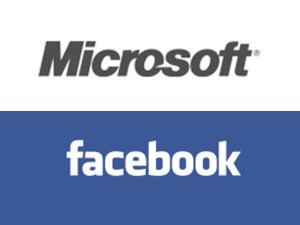Facebook to pay Microsoft $550M deal patents
SAN FRANCISCO — Facebook struck a $550 million deal Monday to get its hands on hundreds of AOL patents from Microsoft as the social network hardened its defenses before it goes public on the Nasdaq.
 Facebook will pick up around 650 of the 925 patents Microsoft bought earlier this April in an auction from AOL in a nearly $1.1 billion deal, Facebook and Microsoft said in a statement.
Facebook will pick up around 650 of the 925 patents Microsoft bought earlier this April in an auction from AOL in a nearly $1.1 billion deal, Facebook and Microsoft said in a statement.
Facebook’s general counsel called the move “another significant step in our ongoing process of building an intellectual property portfolio to protect Facebook’s interests over the long term.”
“Today’s agreement with Facebook enables us to recoup over half of our costs while achieving our goals from the AOL auction,” added Microsoft Executive Vice President Brad Smith.
Facebook also arranged to license the remaining 275 remaining patents or applications in the portfolio being bought by Microsoft, which gets the right to use the patented technology going to the California-based social network.
“Today’s agreement with Microsoft represents an important acquisition for Facebook,” said the social network’s general counsel Ted Ullyot.
While the companies did not disclose specifics on the patents, AOL’s trove of intellectual property is believed to include technology for messaging, search, imaging, and Internet telephony.
Facebook is expected to go public next month in a much-anticipated stock market debut. The company will trade on the technology-heavy Nasdaq exchange under the symbol “FB,” it said in a filing with US regulators.
Facebook in February filed to go public and could raise as much as $10 billion in the largest flotation ever by an Internet company on Wall Street.
The paperwork filed for the initial public offering provided the first glimpse of the financial details of the web giant launched eight years ago by Mark Zuckerberg from his Harvard University dorm room.
Facebook amended its filing on Monday to report quarterly profit slipped to $205 million despite a surge in revenue as it bumped up research and promotion expenses ahead of its stock market debut.
Facebook has also been incurring the cost of shifting operations to a former Sun Microsystems campus in the California city of Menlo Park.
Facebook said that net income in the quarter ended March 31 dipped from the $233 million logged in the same period last year despite revenue vaulting to $1.06 billion.
While revenue improved year-on-year, it was down about six. percent from the prior quarter.
Revenue nearly doubled to $3.7 billion in 2011, with most of it coming from targeted advertising gleaned from personal information shared by the hundreds of millions of users of the platform.
Facebook — the leading social network in all but six countries, notably China and Russia — has been valued between $75 billion and $100 billion.
Facebook recently filed with the US Securities and Exchange Commission to warn potential investors that patent litigation being pursued by Yahoo! could deliver a significant blow to its business.
Early this month, Facebook fired back at Yahoo! with a countersuit charging that the floundering Internet pioneer is violating the social network’s patents — and not the other way around.
The move came after Yahoo! filed suit against Facebook in a California court last month accusing the social networking giant of infringing on 10 patents in several areas including advertising, privacy and messaging.
Sunnyvale, California-based Yahoo! asked the court to order Facebook to halt its alleged patent-infringing activities and to assess unspecified damages.
“Nothing about today’s action changes the fact that Facebook continues to infringe our patents,” Yahoo! said in an email response to an Agence France-Presse inquiry.
“Companies who purchase patents are often working from a position of weakness and take these actions to strengthen their portfolio.”
The Internet Age is becoming as known for patent litigation as it is for online innovation.
From the makers of computer chips to creators of smartphones and designers of videogames, rivalries have spread from marketplaces to courtrooms with combatants warring over rights to use technology.